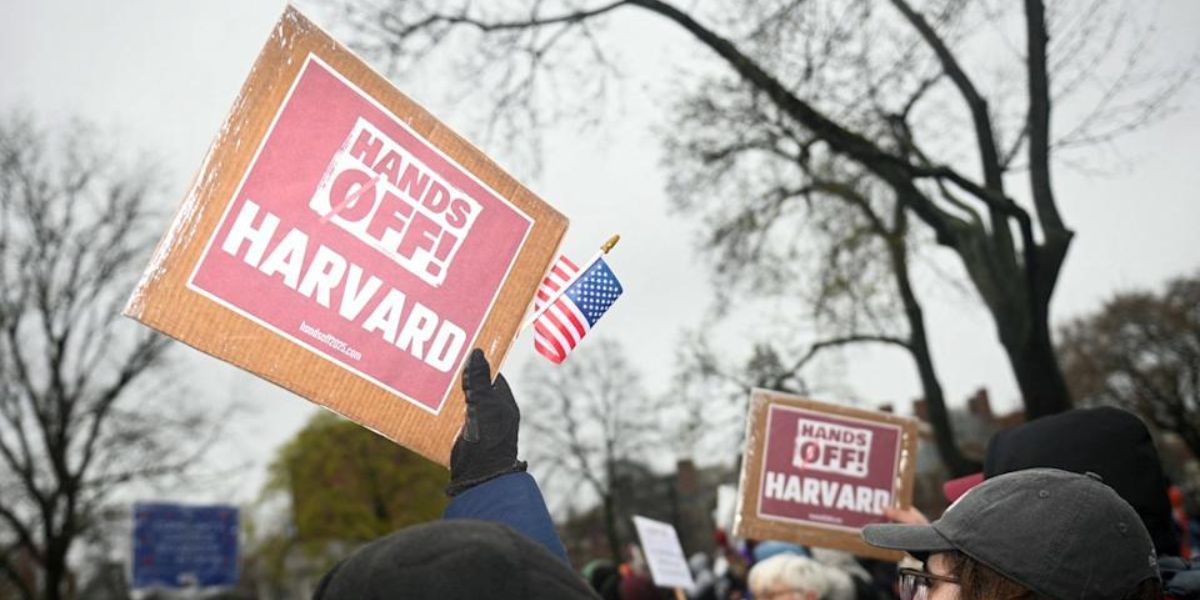The Santa Clara Pueblo Community Library, a hub for the tribe it serves in northern New Mexico, is located within a 90-square-mile rural reservation between the banks of the Rio Grande River and the eastern Jemez Mountains.
According to James Naranjo, the governor of the Santa Clara Pueblo, there is a lack of internet coverage throughout the reserve, and the 1,700 members already have limited access to technology and literacy programs.
According to Naranjo, the library depends on federal grant funds to create connections between the tribe and services that would otherwise be inaccessible; these funds may be threatened by the Trump administration’s budget cuts.
The Institute of Museum and Library Services (IMLS), a small federal agency that funds local libraries and museums nationwide, informed the Pueblo’s and more than a hundred other libraries on federally recognized tribal lands that their congressionally appropriated grant had been terminated midcycle, according to an IMLS spokesperson.
One letter from a tribal grant writer who received the money stated, “IMLS has determined that your grant is unfortunately no longer consistent with the agency’s priorities and no longer serves the interest of the United States and the IMLS Program. IMLS is repurposing its funding allocations in a new direction in furtherance of the President’s agenda.”
Deputy Labor Secretary Keith Sonderling, who was named acting director of the IMLS by President Donald Trump in March, signed the letter.
Trump issued an executive order requesting the agency and six others to be abolished to the “maximum extent consistent with applicable law” just days prior to Sonderling’s appointment. The only body with the legal power to close the agency is Congress.
The IMLS, which ensures that states and sovereign tribes can offer the public free access to a wide range of services like early literacy resources, Braille books, internet access, and STEM and cultural programs, was directed by Trump’s March 14 order to stop all operations, reduce staff, and submit a report to the Office of Management and Budget that includes evidence of compliance.
The 75-person IMLS crew was overrun by the Department of Government Efficiency in a matter of days. Administrative leave was imposed on all but a dozen.
Then, according to an IMLS representative, Sonderling terminated all IMLS awards in early April, with the exception of those that were overlooked due to human error.
Although the spokesman declined to elaborate on the timeframe and requirements, they stated that the awards were canceled for review purposes and that some would be reinstated if they fit with the administration’s aims.
The widespread grant cancellations were a component of a larger initiative by Trump and Elon Musk’s Department of Government Efficiency to drastically cut the amount of federal spending by freezing funds and directing mass layoffs at several agencies, such as the Environmental Protection Agency, the Department of Education, the Social Security Administration, and the Department of Veterans Affairs.
To halt the destruction of the IMLS last month, the American Library Association and the American Federation of State, County and Municipal Employees—the biggest union that represents library workers—filed a lawsuit against Sonderling, Trump, and DOGE.
A temporary restraining order issued last week by U.S. District Judge Richard Leon prevents the Trump administration from further reducing IMLS grants and staff.
Read Also: White House Criticizes Democrats for Entering ICE Facility Without Authorization
The IMLS cannot be further reduced, according to an injunction issued Tuesday in a separate case filed by 21 state attorneys general against the Trump administration.
However, the future of the awards remains uncertain as the litigation progresses before a final decision. Additionally, Trump suggested completely defunding the IMLS in his 2026 budget proposal.
Tribal leaders are concerned that it would signal the start of a protracted battle and the end of the library services that their citizens depend on.
Four funding programs created especially to assist library and museum services in rural Native American, Alaska Native, and Native Hawaiian communities were among the first losses.
Read Also: U.S. Treasury Warns of Potential Default Without Debt Ceiling Hike by August
The lone library in the 68-person Igiugig Village tribe in southwest Alaska, which is thousands of miles from New Mexico, lost the cash it needs to buy books and maintain its summer reading program. Funding for a project aimed at digitizing and conserving Native Alaska’s heritage was cut in Juneau.
Federal funding for the wages of tribal librarians and coordinators has dried up across Indian Country, endangering their jobs and the programs they oversee.
The Native American Library Services Basic Grants program, which aims to give tiny, remote Native American and Indigenous communities access to financing tailored to their specific needs, awarded $10,000 to the Santa Clara Pueblo last year.
Naranjo and tribal leaders nationwide could have to make tough choices to maintain their local museums and libraries if they don’t receive the money they were promised.
Tribal leaders claimed that centuries-old wounds are being exposed by the widespread breach of agreements between the federal government and independent tribal communities.



